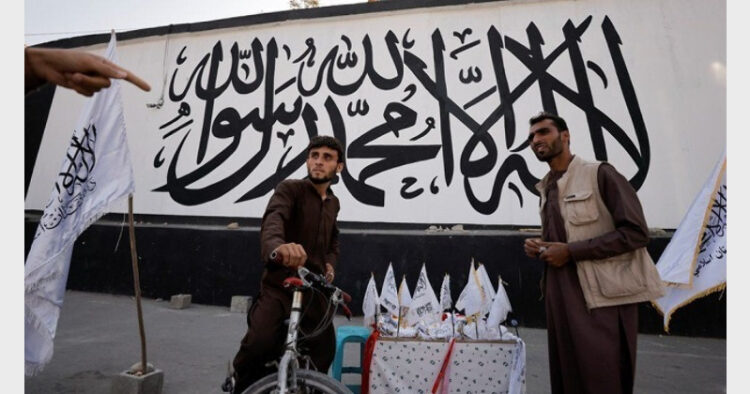The basic assumption behind the recent Doha dialogue Washington and Brussels had with the representatives of current Afghan regime seems to be that the Taliban , now in power in Kabul , can be relied upon in negotiations. One finds any such assumption is absolutely fallacious .
Impartial observers say the United States and the European Union need to bear in mind the ideological radical Islamist nature of the Taliban and its pattern of functioning. Contrary to the promises it held out recently, the Taliban has not cared to form an inclusive government. It has also not kept its promise not to let any groups use the Central Asian state for any terror attack.
The recent series of terror attacks, including the ones on Kabul’s international airport and a Shi’ite mosque in the northern Afghan province of Kunduz , claimed to have been masterminded by the Islamic State-Khorasan (IS-K), suffice to substantiate the Taliban’s approach in this regard.
It would be naïve to expect that the Taliban could be different from al-Qaeda and the Islamic State or the IS-K. The Taliban continues to share with these violent Islamist groups a common ideology—eliminate whoever does not believe in their fanatical version of Islam and establish Islamic rule based on Sharia law.
History bears out the Taliban had been aligned with al-Qaeda. The Islamic State came to be established in 2014, when some of the Taliban commanders defected to IS leader Abu Bakr al-Baghdadi. The IS-K is a self-proclaimed branch of the Islamic State . The 'K' in its name stands for Khorasan to represent the affiliate of IS in Afghanistan and Pakistan.
ISIS is a mere by-product of al-Qaeda. After the US-led intervention in Afghanistan and until their exit in August this year, Western counterterrorism agencies were being successful , to a great extent, in reducing al-Qaeda’s ability to attack the West. This forced al-Qaeda to shift its external operations to supporting local jihadist groups.
Given its ideology and past behaviour , the Taliban is likely to attempt realising its jihadist- expansionist ambition in the region. Today, some Taliban leaders , such as co-founder of the Taliban, Abdul Ghani Baradar, who recently reportedly met CIA Director William J. Burns, may talk of acting tough on the ISIS. But they cannot dare to antagonise them .
Too many Afghan Talibans are close to ISIS. The Afghan Talibans are close also to the Tehrik-i-Taliban Pakistan (TTP), a coalition of Pakistan-based Pashtun Islamist groups. Like the Afghan Taliban, the TTP shares the ideology of the ISIS for an Islamic state.
The observers suggest the morality of the contemporary civilization demands the United States, the European Union and other major world powers to devise an appropriate mechanism to deal with the present Taliban misrule in Kabul. The Taliban regime constitutes a serious threat to peace and humanity in Afghanistan and the world. This threat must be eliminated at the earliest.
The observers add the international community would do well to heed the advice Prime Minister Narendra Modi gave at the Italy-hosted G-20 summit on Afghanistan ( October 12). Modi observed at the summit Afghanistan today required “unhindered humanitarian assistance.” His advice needs urgent consideration. Authentic reports have it that the situation in Afghanistan is grim . Under the Taliban rule in Afghanistan, sufferings of the masses have increased. There is a huge shortage of food and medicines in the country. The international community must reach out to the people of Afghanistan and save them from the Taliban.
(The author is a Delhi-based journalist )














Comments